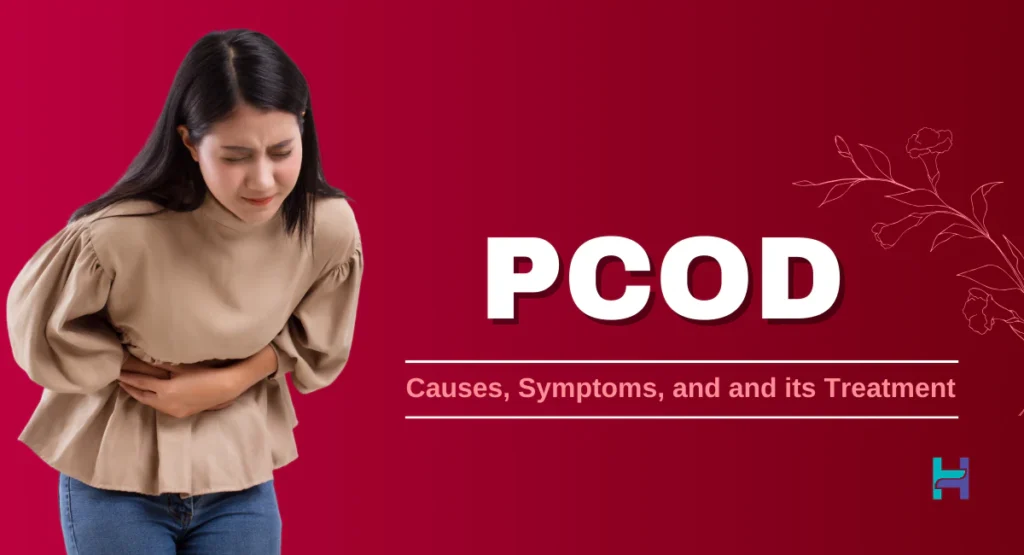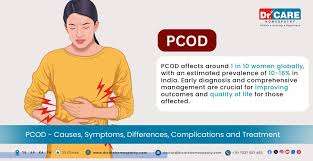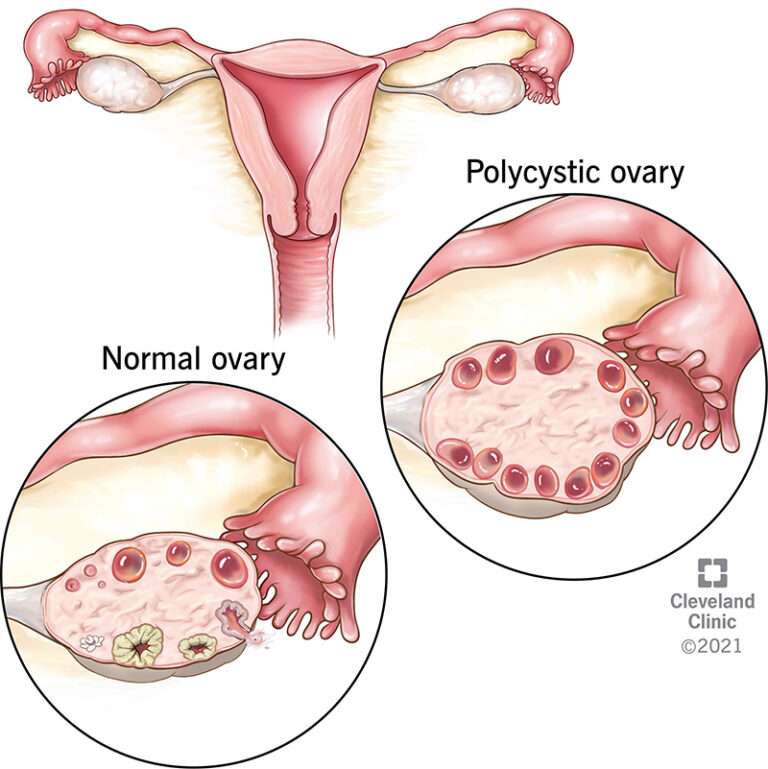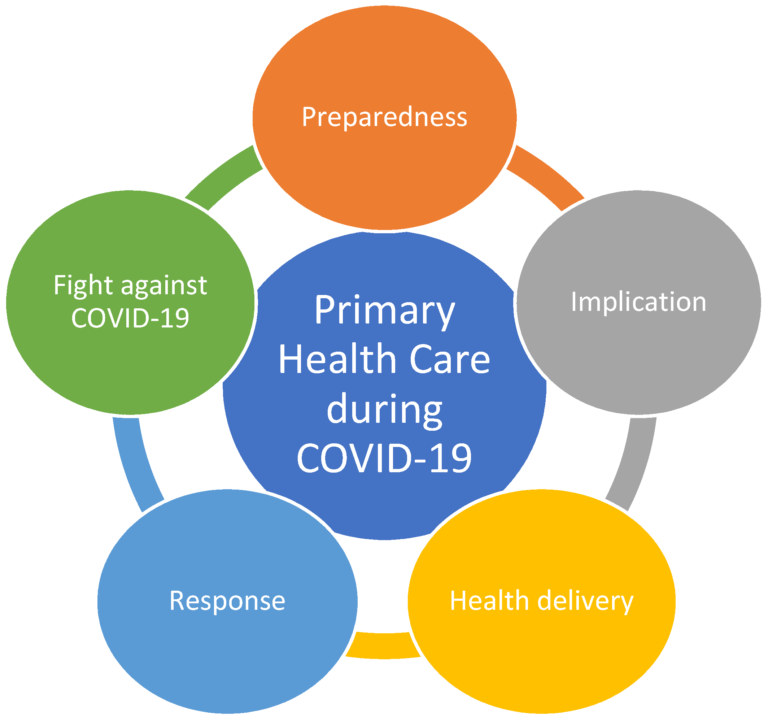
PCOD (Polycystic Ovarian Disease) is a commonplace health condition that impacts many ladies worldwide. It is a hormonal disorder that can cause irregular durations, weight advantage, and fertility problems. Understanding PCOS can help in coping with its symptoms and improving typical fitness. This article explains PCOD in easy phrases, protecting its reasons, symptoms, treatment options, and life-style modifications to control the situation correctly.
What is PCOD?
PCOS is a situation wherein the ovaries produce an immoderate range of immature eggs. These eggs change into cysts, affecting hormone stages and leading to numerous fitness problems. It isn’t like PCOS (Polycystic Ovary Syndrome), that’s a more intense form of the circumstance.
Causes of PCOD
Although the exact reason of PCOD is unknown, numerous factors make a contribution to its development:
Hormonal Imbalance – An increase in male hormones (androgens) ends in irregular intervals and different symptoms.
Genetic Factors – If a member of the family has PCOD, the chances of developing it are higher.
Insulin Resistance – The frame’s incapacity to use insulin well can increase male hormone manufacturing.
Unhealthy Lifestyle – Poor weight loss plan, loss of workout, and strain make contributions to hormonal imbalances.
Symptoms of PCOD
PCOD signs vary from female to lady. Some commonplace signs and symptoms include:
- Irregular or ignored periods
- Excessive hair increase at the face and frame (hirsutism)
- Acne and oily pores and skin
- Weight benefit, particularly across the waist
- Thinning hair or hair loss
- Difficulty getting pregnant
- Mood swings and melancholy
How is PCOD Diagnosed?
Doctors diagnose PCOD primarily based on medical history, bodily assessments, and exams which includes:
Ultrasound – To check for cysts on the ovaries.
Blood Tests – To measure hormone tiers.
Physical Examination – To investigate symptoms like immoderate hair growth and weight advantage.
Treatment Options for PCOD
Although PCOD has no permanent cure, it may be managed with the right treatment. The remedy focuses on controlling signs and enhancing normal fitness.
1. Medications
Birth Control Pills – Help regulate periods and decrease acne.
Metformin – Improves insulin sensitivity and lowers blood sugar degrees.
Anti-Androgen Medications – Reduce excessive hair growth and acne.
2. Lifestyle Changes
Healthy Diet – Eating a balanced weight loss plan with low sugar and processed meals enables manipulation of weight and insulin tiers.
Regular Exercise – Physical pastime allows less insulin resistance and maintains a healthy weight.
Stress Management – Practices like yoga and meditation assist in lowering pressure and improving hormone stability.
Home Remedies for PCOD
In addition to medical treatment, a few herbal treatments may additionally assist manipulate PCOD signs:
Cinnamon – Helps regulate menstrual cycles.
Apple Cider Vinegar – Improves insulin sensitivity.
Flaxseeds – Reduce androgen ranges.
Spearmint Tea – Helps in reducing immoderate hair growth.
PCOD and Pregnancy
PCOD can cause difficulty in conceiving because of abnormal ovulation. However, with proper remedy and life-style adjustments, many women with PCOD can grow to be pregnant. Fertility remedies like ovulation-inducing medications and assisted reproductive techniques can also assist.
Preventing PCOD
While PCOD cannot continually be avoided, following a wholesome lifestyle can lower the chance of growing symptoms. Maintaining a balanced diet, workout frequently, and managing strain are key elements in maintaining hormones balanced.

FAQs
1. What is PCOD?
PCOD (Polycystic Ovarian Disease) is a common hormonal disorder in women. It causes irregular periods, weight gain, acne, and excessive hair growth.
2. What causes PCOD?
PCOD is caused by hormonal imbalance and genetics. High levels of insulin and androgens (male hormones) can lead to PCOD.
3. What are the symptoms of PCOD?
- Irregular or missed periods
- Weight gain
- Acne and oily skin
- Hair thinning or excessive hair growth
- Difficulty in getting pregnant
4. How is PCOD diagnosed?
Doctors diagnose PCOD through medical history, ultrasound scans, and blood tests to check hormone levels.
5. Is PCOD and PCOS the same?
No, PCOD and PCOS (Polycystic Ovary Syndrome) are different. PCOS is a more severe condition with long-term health risks like diabetes and heart disease.
6. Can PCOD be cured?
PCOD cannot be completely cured, but its symptoms can be managed with a healthy lifestyle, diet, and medications.
7. What is the best diet for PCOD?
A healthy PCOD diet includes:
- Low sugar and low-carb foods
- High fiber foods like vegetables and whole grains
- Lean proteins like fish and chicken
- Avoiding junk food and sugary drinks
8. Can exercise help in PCOD?
Yes, regular exercise helps in weight management and balances hormones, reducing PCOD symptoms.
9. Does PCOD affect pregnancy?
Yes, PCOD can make it harder to conceive, but with proper treatment and lifestyle changes, many women can have a healthy pregnancy.
10. What treatments are available for PCOD?
Treatment options include:
- Lifestyle changes (diet and exercise)
- Medications for hormonal balance
- Fertility treatments if needed
11. Can stress worsen PCOD?
Yes, stress can affect hormones and worsen PCOD symptoms. Practicing yoga, meditation, and relaxation techniques can help.
12. Should I see a doctor for PCOD?
Yes, if you experience irregular periods, weight gain, or difficulty conceiving, consult a doctor for diagnosis and treatment.
Conclusion
PCOD is a commonplace condition that impacts many girls, however it could be managed with the right treatment and life-style modifications. Understanding the signs and reasons of PCOD can assist girls take control of their fitness and stay a balanced lifestyle. If you suspect you have PCOD, seek advice from a doctor for proper prognosis and remedy.






